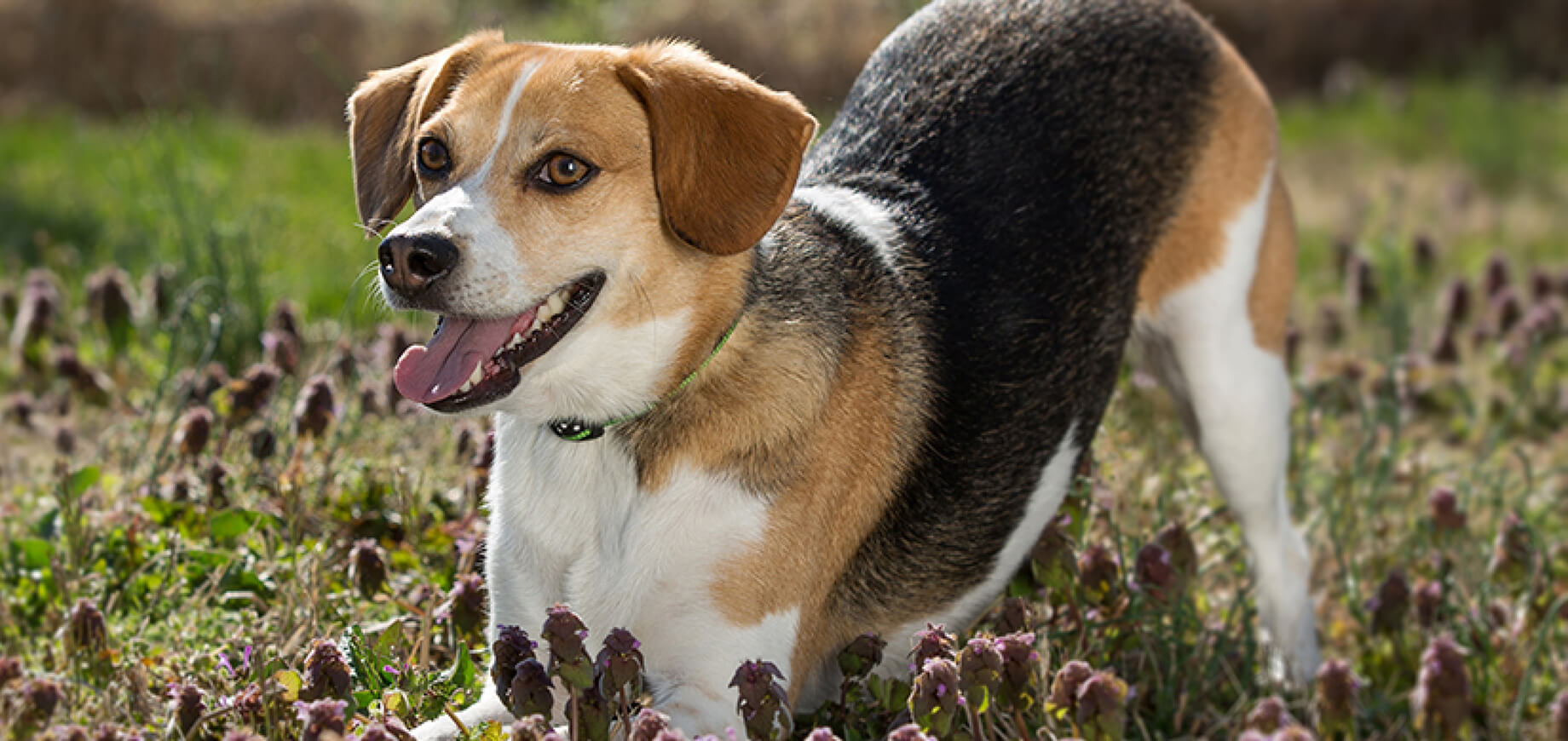Find products that match your dog’s needs

Dog worms are one of the most common causes of intestinal disorders in dogs. Worms in dogs dwell in the animal’s intestines and feed on the dog’s blood or food present in organs. Dog worms are far more uncomfortable than they sound. Roundworms, whipworms, hookworms, and tapeworms are the different types of worms in dogs that can infect them and make them sick.
You might be wondering how a dog gets infected by worms. Here are some of the most common reasons for worms in dogs:
If your dog ends up ingesting an infected fly while grooming itself, it also may end up ingesting a tapeworm parasite.
If your fur baby plays in contaminated soil, parasites can easily find their way into your dog’s system and infect them. Contaminated soil is home to roundworms, hookworms, and whipworms that live in the form of larvae. Upon ingesting, these parasites become active eggs and reside in the intestines, giving trouble to your dog.
If your dog bites or eats an infected rodent, it may also end up ingesting dog worms. This is another way how roundworms, hookworms, tapeworms, and whipworms can make a home into your dog’s body.
Mother dog can transmit roundworms and hookworms to its unborn puppy through her uterus. She can infect her young pup with worms while breastfeeding as well. This is one of the common causes of transmitting dog worms. Therefore, it is very important to seek advice about worming puppies from a vet.
Dog worms can often cause many changes in your dog’s health and appearance. You should look out for health issues like diarrhoea that sometimes contains blood or mucus. Notice if your dog looks unhealthy, has a bloated belly, or a dry coat. Other effects of dog worms include adult worms in your pooch’s vomit and unusual weight loss.
How to identify if your dog is infected with dog worms and what are the symptoms of worms in dogs? Each worm exhibits different symptoms in its host. Here are the signs to look out for dog worms:
These worms can be seen through the naked eye and can be seen in the stools of a dog. Sometimes, the dog might even cough out a single worm or a cluster of worms. Diarrhoea, a dull coat, weight loss, lethargy, and a potbelly-like tummy are some of the distinct symptoms that indicate your dog has roundworms.
These worms are smaller than roundworms but still visible to the naked eye and can be seen in the stools of a dog. They cause chronic weight loss and one of the main signs of whipworms is bloody stools and/or a visible mucus coating on the faeces.
Fully grown hookworms are not visible to the naked eye. Symptoms are bloody stools, lethargy, anemia, and weakness.
You can easily identify tapeworms as they look like rice grains in the dog’s stools. If the dog keeps scooting uncontrollably, keeps itching and bites its back, it might be infected with tapeworms.
Once the tests determine what kind of worm has infected your dog, the vet will set a treatment plan to get your pooch better. These treatments may come in the form of spot-ons, injectables, or oral dewormers that will neutralise and kill the worms in your dog’s body. They may also put your dog on oral and topical flea prevention medicines that are to be given to your dog each month because tapeworm infections can recur if your dog’s environ has fleas. Given below are some of the common worm treatments in dogs:
These medications are to be fed to your dog orally. If the worm infection is high, oral dewormers might have side effects of vomiting, mild diarrhoea, and a temporary loss of appetite.
These treatments aim to kill the fleas attached to your dog’s coat or fur.
Praziquantel is an example of an injectable one-time dewormer that is used to treat tapeworm infections. This treatment paralyses and moves the worm from the intestinal wall and allows it to be passed through the stools. Injectable dewormers may cause side effects like reaction at the site of injection, pain, swelling, and mild inflammation.
You might be wondering if dog worms could be a danger to humans since the dog infected with worms would be sharing space with its pet parent. Dog worms like roundworms pose a risk to the health of children and even adults. If you come in contact with the faeces of a dog infected with dog worms, the infection can pass on to you as well. Children should not be brought near the place where the infected dog has passed stools. And even if the dog’s caretaker cleans the area, they should immediately wash their hands thoroughly.
You may not get worms from your dog sleeping in your bed or even licking you. Dog worms are transmitted if you directly come in contact with the worm eggs or young worms.
Worms, if left untreated, can lead to serious health complications. Therefore, if you notice bloody stools or unreasonable lethargy in your dog, it is best to take it to the vet and rule out dog worms.
If your dog gets infected with dog worms, do make sure you give it medications on time. It is also important to clean the area after the dog with dog worms has passed stools. This will prevent the worm eggs from spreading throughout the house and coming in contact with other residents of the house.
You may start worming your puppy once it is six months old, after taking advice from the vet.
Two of the main symptoms of your dog having dog worms are lethargy and bloody stools. If you notice your otherwise active dog is suddenly not in the mood for walks and is constantly tired or passing bloody or mucus coated stools, rush to the vet.
Follow the treatment plan set by the vet to nurse your dog back to good health after a bout of dog worms. Maintaining good hygiene around the house, following the vet’s advice, administering medicine on time, and flea control help in getting rid of worms in dogs.
Avoid self-medicating your dog or buying over-the-counter medicines to cure them of dog worms. Following the vet’s treatment plan is the best way to deworm your dog safely.
You only get worms from your dog if you come in contact with its faeces. If your worm-infected dog passes stools, clean the area thoroughly and wash your hands immediately. Moreover, do not let kids enter the area where your dog has passed stools.

Find a PEDIGREE® stockist
near you!
Buy online
Click to buy from any of the retailers below

